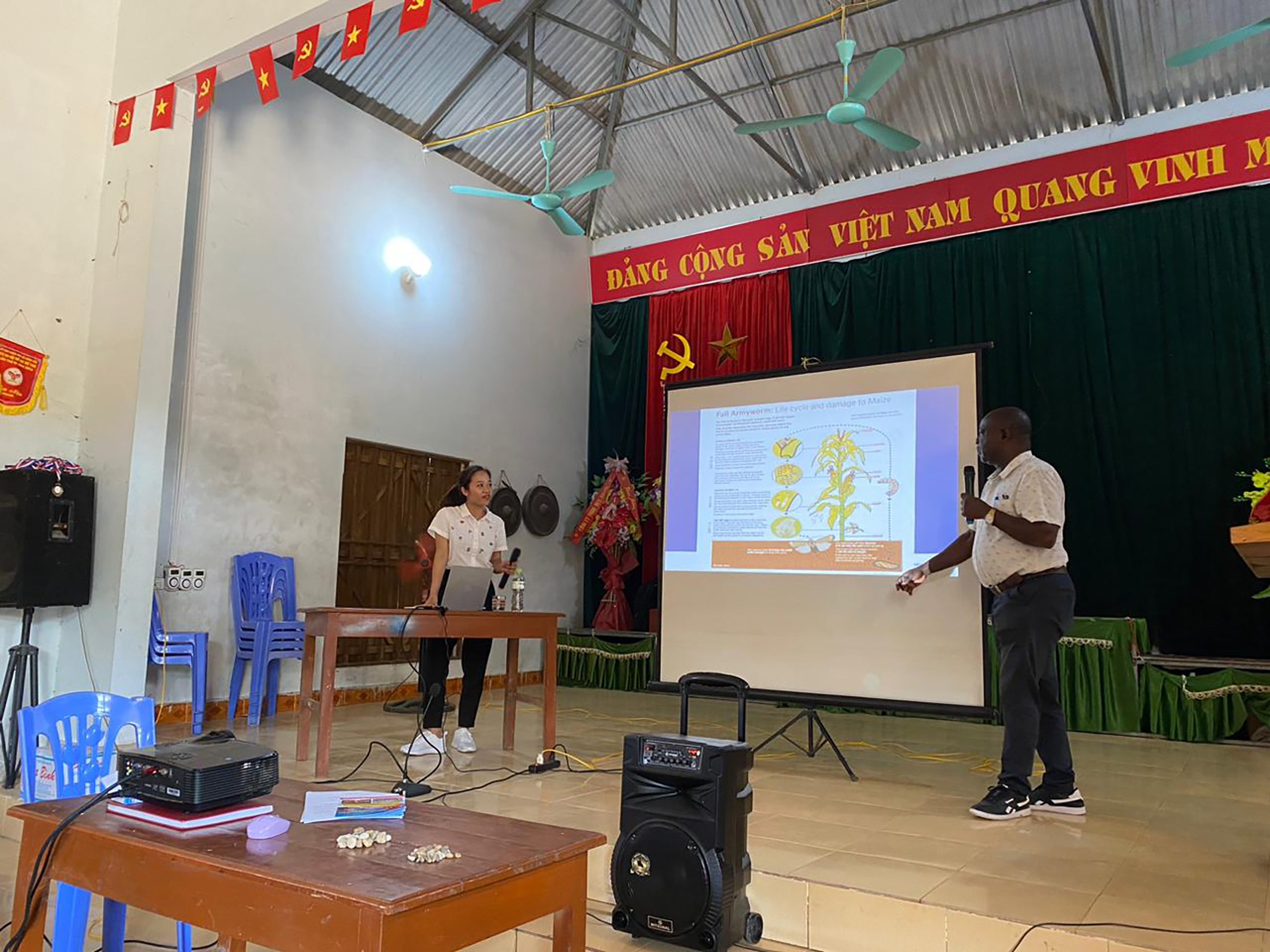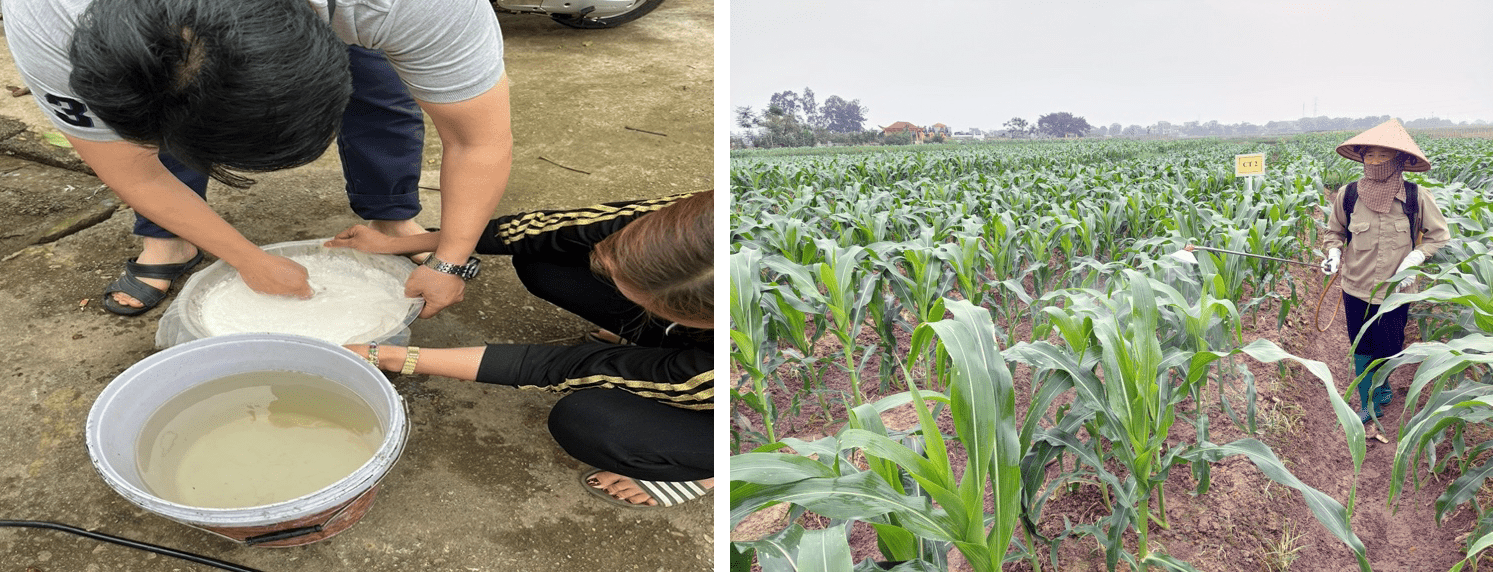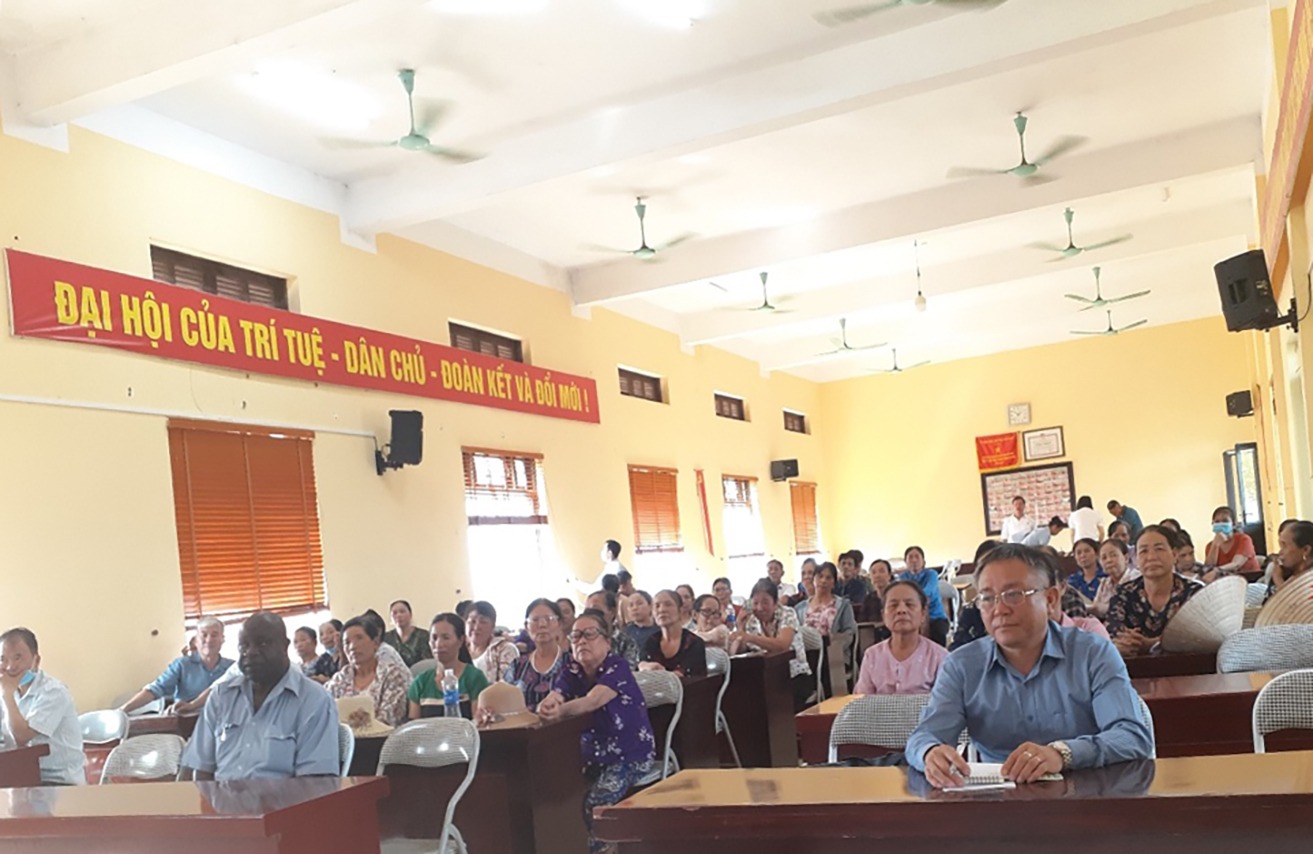

FAW Food Spray Research and Training Continues in Vietnam
August 16, 2023

Since 2020, the NSW Committee of the Crawford Fund has supported Dr Robert Mensah’s work in collaboration with Dr Nguyen Liem at the Plant Protection Research Institute (PPRI) in Vietnam to develop a “beneficial insect attractant food spray product” and use it effectively to manage Fall Armyworm (FAW) and other pests on maize crops in Vietnam.
The food spray product was developed from local rice ingredients mixed with sugar (arrestant), natural soap (stickem) and integrated with neem extract (on an ‘as when needed’ basis) to attract and conserve predatory insects to manage FAW and other pests.
Trials with smallholder maize farmers in Vietnam over three seasons have shown that, with suitable training, and as part of an Integrated Pest Management (IPM) approach, the food spray product would be adopted by maize growers in Vietnam and significantly reduce synthetic insecticide use.
Farmers in the Indo-Pacific region such as Vietnam are using large quantities of synthetic insecticides to manage FAW and other pests on agricultural crops, thereby endangering their own health and the health of consumers.

Dr Mensah visited Vietnam in 2022, and again recently, to train technical, research and professional staff of PPRI, and small and commercial scale maize growers (Farmer Field School) in Tam Duong District in Vinh Phuc and Kim Bang District in Hoa Binh Province in the effective use of the food spray technology.
The overall purpose of the visit was to:
- undertake face-to-face training with Dr Nguyen and technical staff of PPRI in Vietnam (key targets included agricultural extension services collaborating in the food spray trial),
- train smallholder and commercial maize growers in Tam Duong District in Vinh Phuc Province and Kim Bang District in Hoa Binh Province,
- train collaborating project counterparts and field agents in other districts how to use the food spray technology. The training involved training of the trainers, farmer field school in maize crops and community center halls using power point presentation.
The training course introduced professional, technical staff and growers to the concept of the food spray method, rationale of the food spray, basic ecological science on how the method works, and how the food spray technology can contribute to better pest management.

The participants were taught the three linked components of the food spray technology:
- manipulating the crop habitat to help provide refuge for natural enemies
- spraying the crop foliage with a food supplement to attract natural enemies to the farm and
- avoiding use of synthetic insecticides, especially early season which will disrupt and kill natural enemies.
The course also trained all participants how to prepare, apply and judge optimum timing of the food spray, including field monitoring, recording, and habitat management.
The feedback from both professional staff and maize farmers indicated that the training has been highly successful and has enhanced adoption and effective use of the food spray technology.
The course has trained over 300 participants (50.2% males and 49.8% females) on the effective use of the food spray technology, how it works, field monitoring and decision-making processes in the use of the food spray method. Dr Mensah reports that an over 60% adoption rate is expected by 2024/25.




